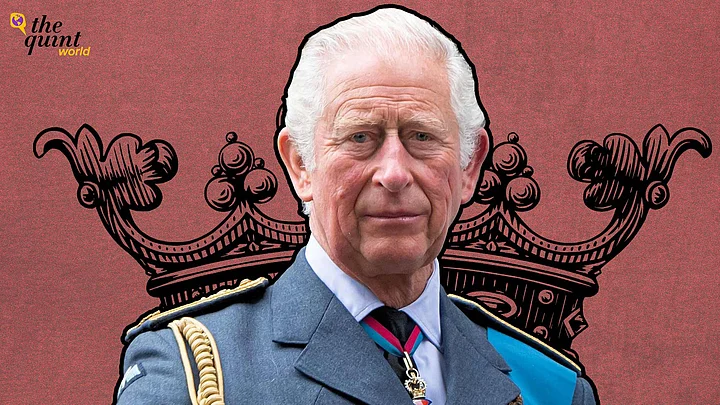In the early hours of Wednesday morning, late-night revellers in central London were astonished to see thousands of troops take to the streets. Some were on horseback; others were wearing the ceremonial uniform of the guards’ regiments. At the heart of this moonlight parade were two ornate gilt horse-drawn carriages. There was no publicity surrounding the procession but snatched video of it has surfaced online.
As you may have guessed, this was not a security operation but a rehearsal for Saturday’s coronation. King Charles and Queen Camilla weren’t present. But they too have been practising their roles, both at the palace and in run-throughs at Westminster Abbey. The eyes of the nation and the world will be on the coronation and everyone involved wants to ensure it’s a credit to the new king.
Coronations of the Past
Britain has had centuries of experience in royal pomp and pageantry. Queen Elizabeth’s funeral last September was a sombre event but spectacularly well-choreographed and on a grand scale. Saturday’s crowning and procession through the capital is even more ambitious and complex.
Coronations haven’t always gone to plan. Back in 1821, George IV’s crowning was overshadowed by the unexpected appearance of his estranged queen, Caroline of Brunswick. The doors of Westminster Abbey were slammed in her face; she was shooed away. Caroline’s humiliation won her the hearts of many Britons who were none-too-fond of her decadent and debauched husband.
Seventeen years later, Queen Victoria’s coronation was remembered as under-prepared and over long – five hours! – with mishaps including a peer who was involved in the ceremony losing his step and falling over.
Wind forward a century and in 1936 Queen Elizabeth’s uncle, Edward VIII, abdicated before his coronation – he was determined to marry a divorced woman and the church insisted that he choose between wearing the crown and wedding Mrs Simpson. The queen’s coronation back in the summer of 1953 was the first to be televised in full. She was in her twenties and a young mother and the freshness and glamour of the occasion caught the country’s imagination. Amid the gloom of post-war austerity, it was a glimpse of drama and splendour, holding a promise of better days ahead.
Britain’s two era-defining queens, Victoria and Elizabeth, acceded to the throne as young women. Most new monarchs, in the nature of things, are no longer in their prime. King Charles is 74, which most people would regard as a little old to get a promotion to the big job. He has a hard act to follow. His mother was hugely popular – even those with no time for the flummery of monarchy would acknowledge that she served her country well.
Traditional or Contemporary?
The new king has tried to make his mark on the coronation. Many fewer of the great and the good will be filling the aisles of the Abbey; their places have been taken by members of the public who have been of conspicuous service to their communities – volunteers, health workers, charity staff, food bank organisers.
Representatives of many faith groups, and not simply the Church of England, will have a role in the service; women will be conspicuous among the Christian clergy involved; leading figures in Britain’s South Asian communities have been allotted roles in carrying the royal regalia.
Yet the coronation will not really be modern. With horse-drawn carriages, mounted trumpeters, orb and sceptre and all the other pseudo-magical aspects of the ceremony, how can it seem contemporary? That is the new king’s dilemma.
Britain’s royalty is mired in custom, tradition and deference; if you try to change that, you lose the mystery which makes monarchy special.
King Charles himself, during his long apprenticeship, has championed issues of real social concern: organic farming, environmental protection, and urban deprivation. Queen Camilla, initially seen as the ‘other woman’ who broke up Charles’s marriage to Princess Di, is gaining esteem as a lively and likeable consort. But they are nothing like as loved as the late queen.
The King is Not Seen as the Future Anymore
The royal family has been dogged by scandal and controversy. The king’s brother, Prince Andrew, has been obliged to step down from public duties following revelations about his friendship with the convicted sex offender Jeffrey Epstein and allegations – which he denies – of sex with an underage woman.
The king’s son, Prince Harry, has written a searing memoir which accuses the royal family of being unable to demonstrate love and affection and of being unwelcoming to his wife, Meghan Markle. Harry will be in the Abbey on Saturday; Meghan is staying in California with their young children.
Another body blow of a royal scandal and Britain’s monarchy could be on the floor. While opinion polls suggest that most Britons support having a hereditary monarch, the margin is narrowing. Among the young, a clear majority say they would prefer an elected head of state.
Amid high inflation, a health service crisis and the collapse of trust in the political class, the future of the royal family is not one of Britain’s top political issues. But increasingly, the king is seen as part of Britain’s past, not its future.
So if you watch the coronation on TV, and see the huge flag-waving crowds lining the streets or thronging to community street parties, just bear in mind that many of those who are toasting the new king today may be demanding a new form of governance tomorrow.
(Andrew Whitehead is a former BBC India correspondent and also reported on British politics for the BBC. This is an opinion article and the views expressed are the author's own. The Quint neither endorses nor is responsible for them.)
